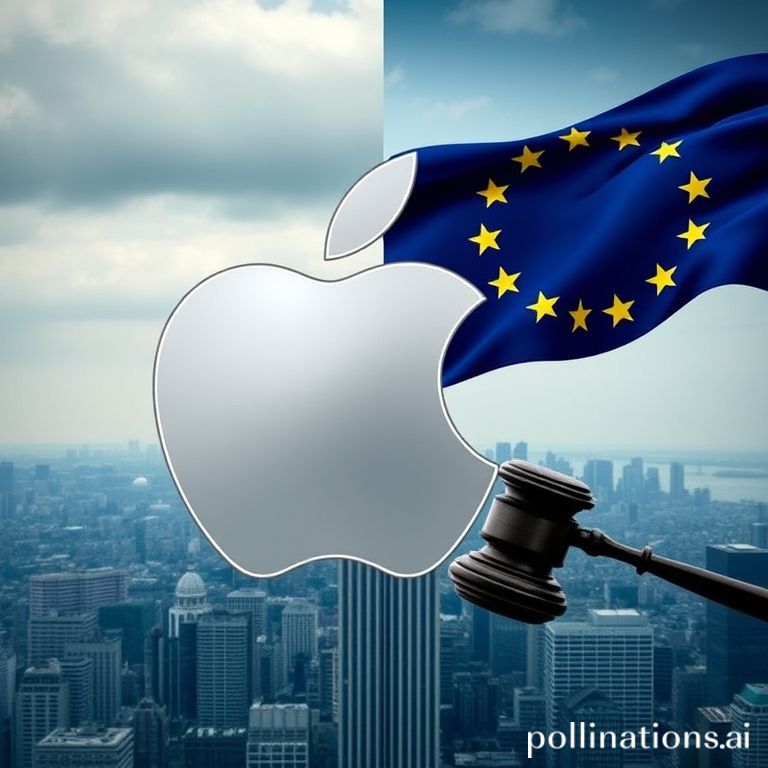Apple Urges EU to Reevaluate Digital Markets Act

Apple is actively urging the European Union to reconsider its landmark Digital Markets Act (DMA), asserting that the regulation, more than a year after its enactment, is creating a detrimental experience for its users within the EU. In a recent blog post, the technology behemoth articulated its concerns, claiming the DMA introduces new risks, disrupts the cohesive functionality of Apple products, and threatens to leave its European users technologically lagging as new advancements emerge.
The Digital Markets Act: A Regulatory Framework
The Digital Markets Act represents a significant legislative effort by the European Union, specifically designed to curtail potential market abuses by dominant technology companies operating within its member states. This comprehensive law targets "gatekeeper" firms that control critical digital services, including operating systems, app stores, and various online platforms. The primary objective of the DMA is to foster fairer competition, open up digital markets, and empower consumers with more choices. To ensure compliance, the regulation grants regulators the authority to impose substantial fines, which can amount to up to 10% of a company's annual worldwide revenue, with the penalty escalating to 20% for repeat offenses.
Apple's Core Arguments Against the DMA
Apple's critique of the DMA centers on several key areas, predominantly revolving around user experience, privacy, and security. The company argues that the DMA's mandates, particularly those compelling Apple to allow alternative app marketplaces and third-party payment systems outside its own App Store, undermine the stringent privacy and security protocols it has established. According to Apple, this forced openness exposes users to increased vulnerabilities, such as a higher risk of encountering scams, fraudulent applications, or being subjected to overcharging by external providers who do not adhere to Apple's rigorous vetting processes.
Furthermore, Apple highlights that the DMA necessitates granting other companies access to sensitive user data and core technologies embedded within Apple products. The company contends that it is often obligated to comply with nearly every request for access, even when such requests may pose significant privacy risks to its users. Apple cites examples where companies have demanded access to highly sensitive user information on iPhones, including personal messages, emails, medical alerts, or even the complete history of Wi-Fi networks a user has joined. Such extensive data access, Apple argues, compromises the fundamental privacy and security guarantees that its ecosystem is designed to provide.
Enforcement and Broader Regulatory Scrutiny
The European Commission has already demonstrated its resolve in enforcing the DMA. In April, Apple was fined a substantial $580 million for violating rules that prevent app developers from guiding users to purchasing options outside of the App Store. Apple is currently in the process of appealing this significant fine, underscoring the ongoing legal and regulatory battle between the tech giant and the EU.
Beyond the Digital Markets Act, Apple and other major tech companies are also under scrutiny from the EU under a complementary piece of legislation: the Digital Services Act (DSA). The DSA focuses on holding online platforms accountable for content moderation, transparency, and, crucially, the prevention of illegal content and activities, including financial fraud. Recent reports indicate that European regulators are actively seeking more information from Apple, Meta, and Google regarding their measures to combat financial fraud on their platforms. Henna Virkkunen, the EU's executive vice president of tech sovereignty, security, and democracy, emphasized the growing concern over online criminal activities and the imperative for online platforms to exert maximum effort in detecting and preventing such illicit content.
Conclusion: The Future of Digital Regulation
The ongoing discourse between Apple and the European Union vividly illustrates the intricate tension between technological innovation, corporate control over proprietary ecosystems, and governmental efforts to regulate digital markets. While the EU aims to create a more equitable and competitive digital environment, Apple staunchly defends its integrated approach as essential for user security, privacy, and an uncompromised experience. This high-stakes debate has profound implications, not only for the operational strategies of global tech giants but also for the future trajectory of digital services and consumer protection across Europe and potentially worldwide, as other jurisdictions observe these developments closely. The resolution of these regulatory challenges will undoubtedly shape the landscape of the digital economy for years to come.
